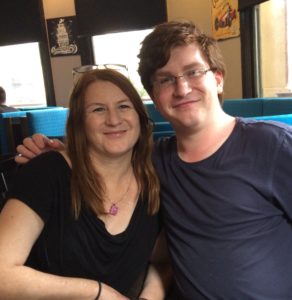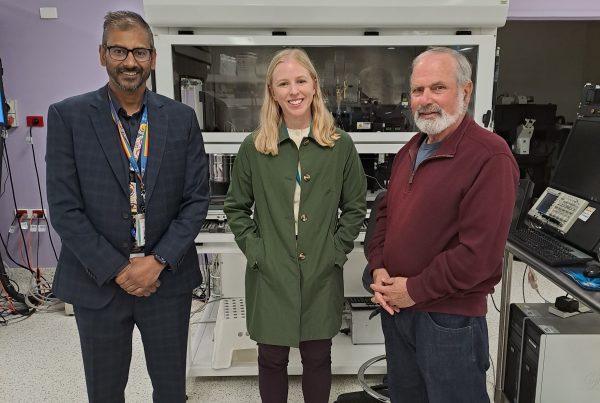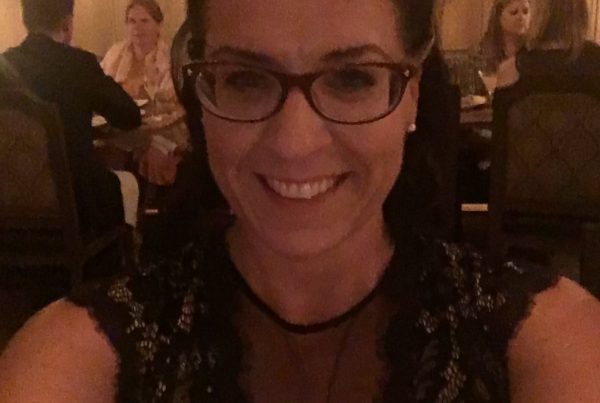Friends and family who who support those living with CF may also at times experience challenges which require them to reassess goals and aspirations for themselves and their whole family.
Below are some common feelings and experiences of how CF might affect loved ones mentally, physically and emotionally.
Siblings
Throughout the life journey, siblings are often riding the rollercoaster of emotions alongside their sibling/s who have CF. Siblings who are often a child’s first peer relationship can be one of the most important constants to a person, providing protection, comfort, communication, entertainment, and counsel. Positive sibling relationships have also demonstrated to help during times of adversity (Healy, 2018).
The impact of CF on siblings is mixed (Havermans, et. al 2010, Glazner, 2017) and the demands of CF treatment can sometimes take focus away from the needs of other children in the immediate family, however many of the siblings in the CF community show great empathy, resilience, and compassion due to their experiences. Siblings of people with CF may also develop independence at an early age because of spending time in the care of family and friends whilst their sibling/s are in hospital (Chronic Illness Alliance, 2020).
Dr Judith Glazner who has had the opportunity to work with the CF community in Melbourne provides an insightful observation in her 2017 thesis study about the sibling experience:
”When I first started in my role as CF Clinical Nurse Consultant at The Royal Children’s Hospital in Melbourne, Australia, I quickly realised that I was working with the family system, including other members of the family who were indirectly affected by this difficult and incurable disease. Family routines were skewed, treatment regimens were often an overwhelming priority and the relationships between parents and well children were strained in ways rarely experienced by other families.
What about me?, Glazner, 2017.
All siblings experience intense emotions including love, envy, empathy, and companionship; these are likely to be exaggerated when one sibling has a chronic illness such as CF.
Siblings, like everyone, can experience a range of emotions and feelings at different times of the lives and as CF treatments ebb and flow within their family system.
Common feelings by siblings include:
- Guilt– Feeling guilty for being healthy; having opportunities their sibling does not have; or for any negative feelings towards their siblings and/or parents.
- Pride– Siblings report feeling proud of the resilience and strength their sibling has, the achievements they reach, and adversity they overcome.
- Gratitude– For their current health status; for having opportunities that others do not; and for the smaller accomplishments in life.
- Worry– About financial hardship their sibling may face; about their parent’s emotional wellbeing; and pressure to be the ‘easy’ child; and their sibling’s health.
- Resentment– Siblings often resent the extra attention and time devoted to their sibling, or they may resent the limitations on the family because of the illness.
- Loss and isolation– siblings can feel a sense of loss and grieve the . They may also feel isolated and misunderstood by their own social group when they dedicate time to their sibling in hospital.
- Responsibility– siblings often feel responsible to be more independent to reduce stress on parents; or for looking after their sibling.
If you or someone you know is having these feelings, it is important to know that is it normal and you are not alone. Seeking support with a trusted friend or other resources to help maintain good mental health can help in overcoming any of these feelings you may be concerned about.
Partners and Children
Partners to and children of those who live with chronic illness are also impacted by the burden of disease, often suffering similar emotional responses including worry, stress, anger, isolation, stigma, anxiety, and depression. They also experience the constant balance of trying to maintain a ‘normal life’ of juggling daily challenges, whilst supporting and providing informal care for their loved one. This can affect both physical and psychological health, as there is limited time for themselves and constant worry about their loved one’s health.
Typically partners and children receive support from their informal network who are crucial to maintaining a sense of self, and for providing ongoing support during challenging times. Being able to nurture and appreciate close relationships is as important as maintaining good physical health. It is important that partners and children take time out for themselves.
Looking after you
- Be kind to yourself. Acknowledge that you can only do so much, and allow yourself to make mistakes and forget things occasionally.
- Use positive self-talk. Focus on what you achieve each day and the quality of life your family has.
- Celebrate the wins
- Take time out. It is important that you practice self-care when you need to
- Practice relaxation or mindfulness
- Make sure you get enough rest, eat well, and exercise
- Connect with others. Identifying with others in a similar situation can reduce negative feelings
Stories from families and carers
References
Chronicillness.org.au. 2020. Effects On The Individual – Chronic Illness Alliance – Research And Advocacy For The Chronically Ill In Australia. [online] Available at: <https://www.chronicillness.org.au/invisible-illness/cystic-fibrosis/effects-on-the-individual/> [Accessed 1 December 2020].
Glazner, J.A. (2017) What about me: the impact of cystic fibrosis on parental differential treatment, sibling relationships and adjustment. (Unpublished doctoral dissertation) The University of Melbourne
Healy K.L. (2018) Peer and Sibling Relationships. In: Sanders M., Morawska A. (eds) Handbook of Parenting and Child Development Across the Lifespan. Springer, Cham. https://doi.org/10.1007/978-3-319-94598-9_11






